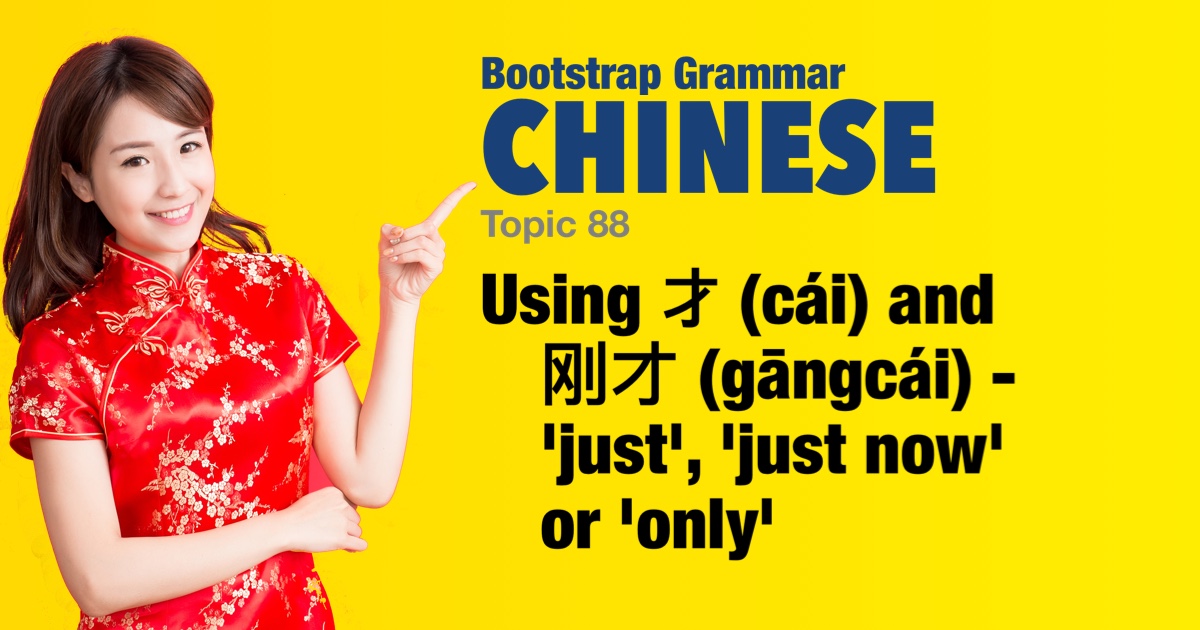Chinese grammar - Using 才 (cái) and 刚才 (gāngcái) - 'just', 'just now' or 'only' |
|||
|
|||
The adverb 才 (cái) can be used to express several meanings, depending on the context. • Indicating that something happened just a moment ago - 'just' or 'only just'. Used in this way it can be used in conjuction with 刚. • Indicating a conditional 'only if' or 'only then'. • Indicating 'only' in terms of amount or degree. |
| Examples: | |
|
我才到家。
wǒ cái dào jiā. I just got home. |
|
|
他才吃完饭。
tā cái chīwán fàn. He just finished eating. |
|
|
我们才开始上课。
wǒmen cái kāishǐ shàngkè. We just started class. |
|
|
我刚才看到他。
wǒ gāngcái kàndào tā. I just saw him.
|
|
|
他刚才离开。
tā gāngcái líkāi. He just left.
|
|
|
她刚才打电话。
tā gāngcái dǎdiànhuà. She just made a phone call.
|
|
|
她才起床。
tā cái qǐchuáng. She just got up.
|
|
|
我们班才十个学生。
wǒmen bān cái shí gè xuéshēng. Our class has just ten students.
|
|
|
我才花了五块钱。
wǒ cái huā le wǔ kuàiqián. I only spent five yuan.
|
|
|
她才学了三个星期。
tā cái xué le sān gè xīngqī. She has only studied for three weeks. |
|
|
你来我才走。
nǐ lái wǒ cái zǒu. I will leave only if you come. |
|
|
她吃完饭才能去玩。
tā chī wán fàn cái néng qù wán. She can go play only after finishing [her] meal. |
|
|
你必须完成作业才可以出去。
nǐ bìxū wánchéng zuòyè cái kěyǐ chūqù. You must finish [your] homework only then (you) can go out.
|
|
|
我得等他来了才走。
wǒ děi děng tā lái le cái zǒu. I have to wait for him to arrive only then (I will) leave. |
|
 |
|



